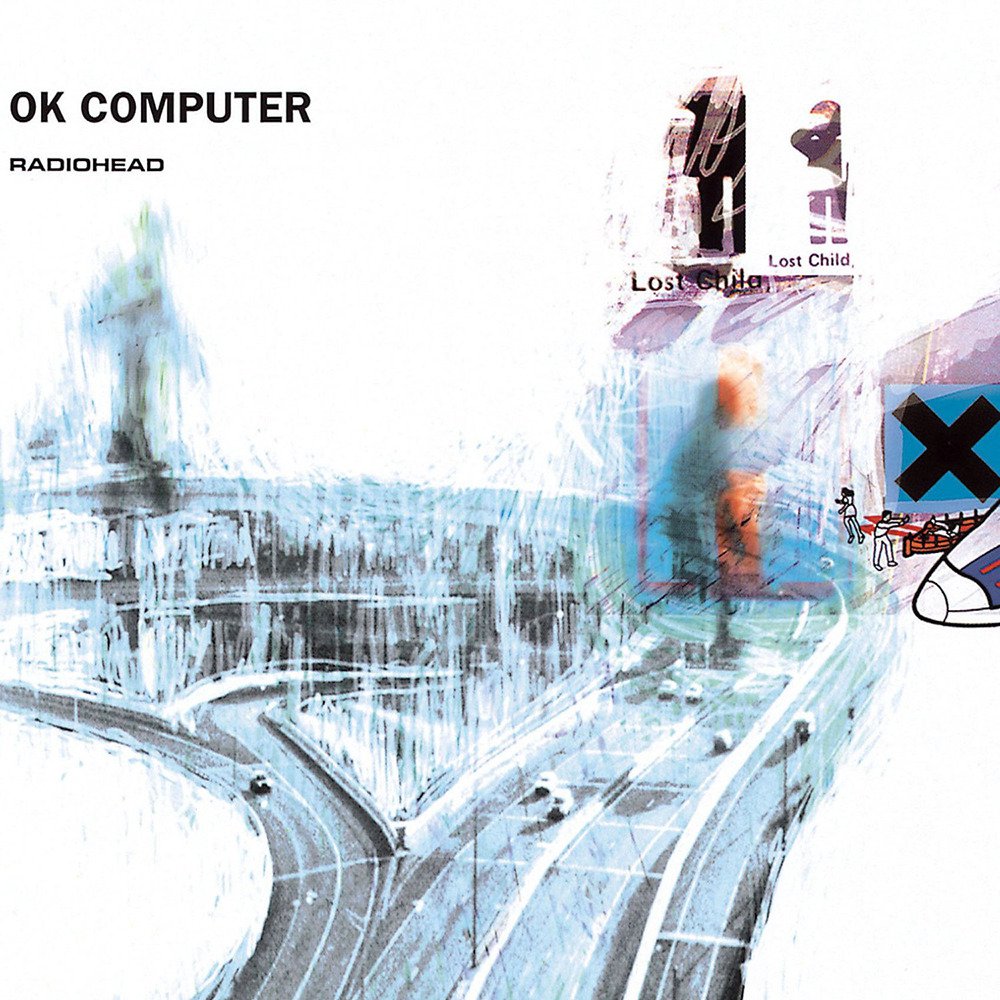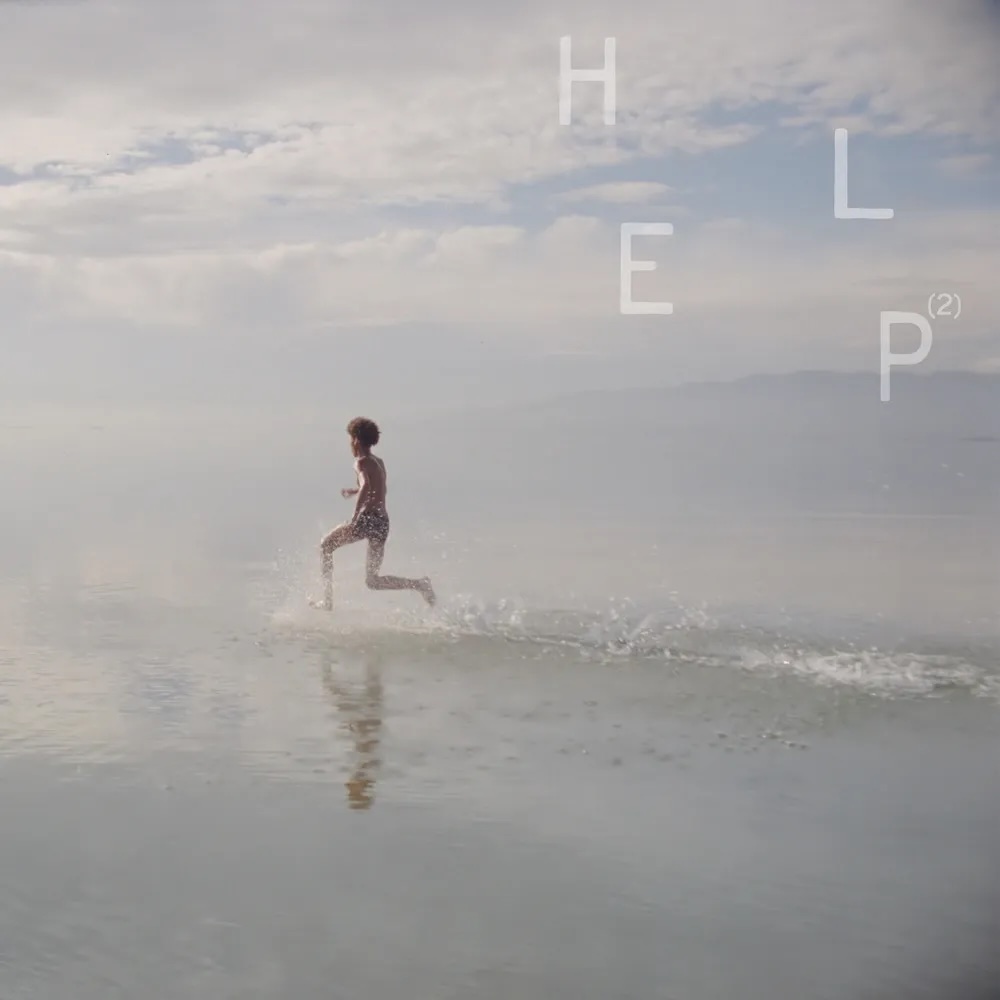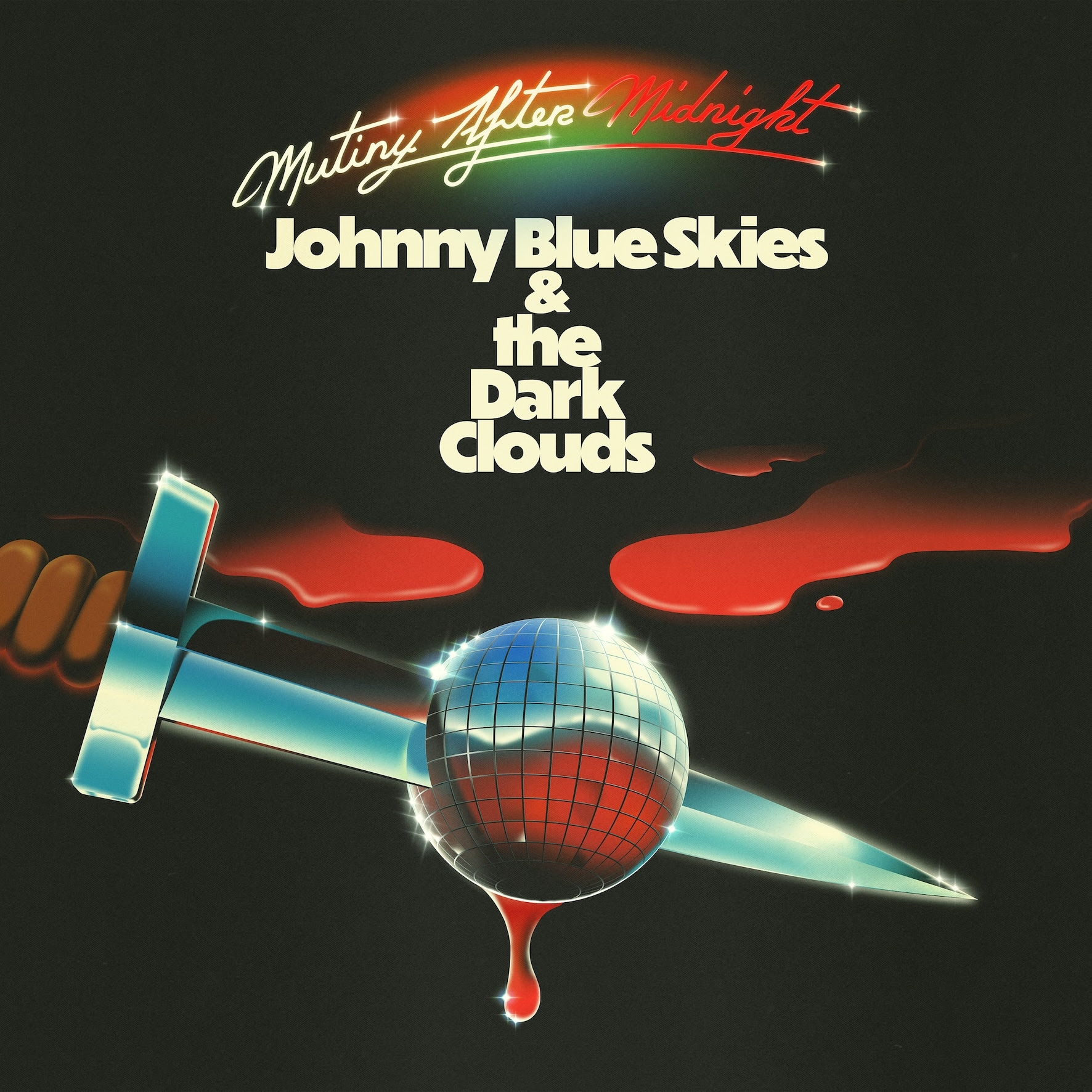The first time I saw the "Paranoid Android" video, it made me hate Radiohead for the next three years. As a sheltered suburban middle schooler, I had no idea what to make of the clip, a gruesome cartoon of distinctly '90s-MTV vintage starring characters from Swedish animator Magnus Carlsson's series Robin. Meek, bewildered slackers Robin and Benjamin casually amble through a day involving a sex worker in a tree, grotesque spectacles in a bar, topless mermaids, an angel in a helicopter, and an obese businessman who dons BDSM attire on a bridge and accidentally cuts his own limbs off with an ax. The images are supposed to be troubling, and they definitely troubled me, but I was just as disturbed by the music, which matched whiny falsetto whimpering with a bizarre acoustic chord progression and some jarring electric jolts. It was weird. A part of me was intrigued, but mostly I was repulsed. So I filed Radiohead away as a band I would probably never get and went back to obsessing over Metallica tabs.
I still hate that video today, partially because it still grosses me out but mostly because it delayed my embrace of what would become the most important band of my life, one that provided me with countless instances of sensory bliss and opened the door to a whole new world of undiscovered sounds. My history as a music fan can honestly be divided into before OK Computer and after OK Computer. It changed everything for me. I'm willing to bet it changed everything for a lot of other people reading this. It certainly changed everything for Radiohead, transforming them from sniveling one-hit wonders with some critical buzz into the most important band in the world. And it's no understatement to say it changed the course of modern music, ful(l) stop.
For the last 20 years, seemingly every ambitious, groundbreaking new rock band has been compared to Radiohead -- "the next Radiohead," "the American Radiohead," et al. That started here. Similarly, although the band already had developed a reputation as insufferable sad sacks among their critics (just ask Alicia Silverstone), OK Computer marked the moment Radiohead's name became shorthand for anyone tossing around "angsty" and "pretentious" as pejoratives. The album certainly spawned no shortage of imitators aiming to apply its futuristic guitar onslaught to more straightforward fare -- the sometimes-disreputable world-conquerors Coldplay and Muse among them -- but it's also hard to imagine titans like Sigur Rós, Broken Social Scene, and Arcade Fire coming into the world fully formed without the influence of OK Computer. With alternative rock dying off in the US and Britpop winding down in the UK, this album swooped in to provide a new template: huge guitar-powered choruses, brooding atmospherics with an electronic fringe, and don't forget the madcap falsetto. Meanwhile, as everyone else rushed to imitate OK Computer, Radiohead themselves would embark upon a long run of subverted expectations, partly a reaction to the impossible demands of people bowled over by this album.
For me, that eureka moment would have to wait. This was a couple years before Napster, nearly a decade before YouTube, and what feels like a lifetime before Spotify. You either had a copy of an album or you didn't. The closest thing to free on-demand listening was checking music out from the library or maybe visiting one of those wall-mounted listening stations they used to have at Virgin Megastore. Digging into a band required an investment of time and effort and usually money, and who wanted to expend precious resources to reevaluate music that had elicited such a strong negative reaction when there were so many other possibilities to explore?
In hindsight, I didn't have the context to process what I was hearing. I was young enough to have begun exploring alt-rock a year or two after Kurt Cobain was already dead. I didn't even know "Creep" -- when I eventually heard it on the radio and learned it was the same band responsible for "Paranoid Android," I was baffled -- and I definitely wasn't familiar with the prog, indie rock, and experimental electronic records that informed the making of OK Computer. My friends and I were on the verge of getting way into Limp Bizkit. We were not bumping Endtroducing.... DJ Shadow.
That said, I'm not sure anybody was ready for the album Radiohead unleashed two decades ago. (Though it began rolling out around the world in May 1997, it hit North America on 7/1/97 -- 20 years ago this Saturday.) OK Computer was received as an instant classic, and at this point anyone hearing it for the first time likely does so with a metric ton of baggage. But imagine approaching it back then as a seasoned music fan. Maybe you'd been bombarded with "Creep," seen Thom Yorke jump in the pool at the MTV Beach House, or even bought their impressive second album after it started generating word-of-mouth buzz. And then all of the sudden they show up with a wildly ambitious opus about isolation, paranoia, and technology's creeping encroachment, manifested in a multicolored array of exultant guitar epics, and they introduce it to the world with this twisted vision that had kids like me peering through our fingers. Imagine the confidence it takes to attempt a song like "Paranoid Android" and to put it out there with a video like that. When you were here before they couldn't look you in the eye!
Radiohead had reason to be confident. They were coming off The Bends, a quantum leap from debut Pablo Honey in terms of songwriting and production. They were winning the admiration of heroes such as Michael Stipe, whose R.E.M. had invited Radiohead on tour in 1995. Alanis Morisette, at the peak of her popularity, followed suit in 1996. And as heard throughout OK Computer, every member of the band was operating at an insanely high level of musicianship: mad scientist Jonny Greenwood wrangling his guitar strings with fearless elasticity, his brother Colin underlying each track with the sorts of basslines that never get in the way yet always get in your head, drummer Phil Selway playing with a futurist's vision and a classicist's precision, Ed O'Brien looking suave as ever while knocking out background vocals (and presumably playing some guitar parts, though I still don't know which ones are his).
And then there was Yorke, a musical superhero beginning to realize the extent of his powers. As the band decamped to a remote farmhouse and an allegedly haunted mansion with Bends engineer Nigel Godrich (who'd go on to produce every subsequent Radiohead album), the frontman's grandiose nightmares began to manifest in all their glory: stories of near-death experiences in planes and automobiles, of powerful forces consolidating power behind closed doors, of paralyzing depression and anxiety in the face of humanity's disquieting trajectory. The sheer variety of styles and forms throughout OK Computer (to say nothing of its many spectacular B-sides) demonstrates how adventurous he was becoming as a songwriter, and that stunning panorama of sounds was largely unified by his torrent of supernatural wails. Yorke's voice brimmed with such breathtaking power that even when communicating unmistakably human fragility, it registered as divine. And with the rest of the band peaking right alongside him, an album that evoked so much despair could not help but stand as an exhilarating endorsement of this species' potential.
It must have been wild to experience that rush in 1997 at the moment this album was entering the world. Maybe you were there, swept up in euphoria along with apparently every celebrity on Earth. Or maybe your own OK Computer epiphany struck sometime later on, during those ensuing years when the album's dark depiction of the future more or less came to pass. (How chilling, in our modern political dystopia, is that one-two punch of bashing, slicing rock 'n' roller "Electioneering" and surveillance state horror show "Climbing Up The Walls"?)
My own awakening was in the spring of 2000. My friend David had discovered some SPIN list of the greatest albums of the '90s and was acquiring them one by one, and he assured me that I really ought to give Radiohead a second chance. So I borrowed his copy of OK Computer and began playing it on sunny drives home from track practice, at night working on homework in my room, during showers on the boombox I kept in the bathroom. And then one day "Exit Music (For A Film)" seized my attention just as the big finish was kicking in and sent me spiraling into everlasting peace along with it. Soon afterwards the rest of the tracks began to click, too, and every listen became a transcendent spiritual experience. Basically overnight I was so obsessed that when David asked me to give back his CD, I had to borrow somebody else's copy to hold me over until mine arrived in the mail. I was hooked.
There is so much to love about OK Computer, after all. "Airbag," our momentous introduction, is a magnificent interstellar burst, as if someone ripped open a portal to heaven and all these tumbling drum breaks and piercing guitar pirouettes spilled out. It's constructed brilliantly, too: tied together by one of those less-is-more Colin Greenwood basslines that so often elevate Radiohead songs to a higher plane, accented by subtle symphonic flourishes that contribute to the track's otherworldly quality, and capped off with one of the grandest, most pristinely executed climaxes in recorded history. It just builds and builds and builds, that initial guitar line re-entering at just the right moment, until everything explodes into energy and light and tingling nerves.
"Airbag" is honestly so good that on its own it would qualify as a musical landmark, but by the time it washes into the ether and "Paranoid Android" blips into the frame, the album's marvels are only beginning. Consider "Subterranean Homesick Alien," a pastoral sci-fi version of Bends-era guitar-pop with a chorus worthy of the Byrds. Recall the titanic guitar squall Jonny Greenwood summons throughout "Lucky," transforming a straightforward ballad into a tearjerking work of art. Behold the shimmering, sighing, gravity-defying mirage that is "Let Down"; cower in the presence of "No Surprises," perhaps history's most unsettling lullaby; grab your lighters as "Karma Police" blooms from a pretty good alt-rock power ballad about creeping conformity into a finale so grand and bittersweet you won't know what kind of tears you're weeping.
It's hard to hear OK Computer with such visceral passion anymore. At this point it's Sgt. Pepper, Dark Side Of The Moon, Nevermind -- an album you fall in love with as a teenager before moving on to more obscure music for more mature palates, so staunchly canonized and so fully subsumed into the cultural DNA that to approach it as anything but a historical artifact requires work on the part of the listener. For a long time I would return to OK Computer and feel nothing; its twists and turns had become so familiar that I might as well have been staring at the Mona Lisa. But let me tell you, if you put yourself in the position to be moved by it again, it will sneak up on you and that initial thrill will come racing back, and you will remember that every bit of hyperbole was richly deserved.
Remember "The Tourist" and its prescient admonition: "Hey man, slow down." However new music tends to capture your imagination -- on a car trip, in your living room through fancy speakers, through headphones on a stroll -- return to that context and see if you don't fall in love with OK Computer all over again. It happened to me a few weeks back while mowing the lawn, believe it or not. I grabbed some standard-issue earbuds, pressed play on my phone, revved up the lawnmower, and boom: Alarms! Surprises! It was as fresh and vital and spellbinding as ever, its appeal further enforced by 20 years of weapons-grade nostalgia. I cannot even describe the depths of joy I felt upon connecting with OK Computer that way again. It was like a switch flipped and I was back in my 1988 Toyota Camry, cruising the streets of suburban Columbus on aimless Saturday nights, awestruck by a genuine masterpiece raining down on me from a great height.






